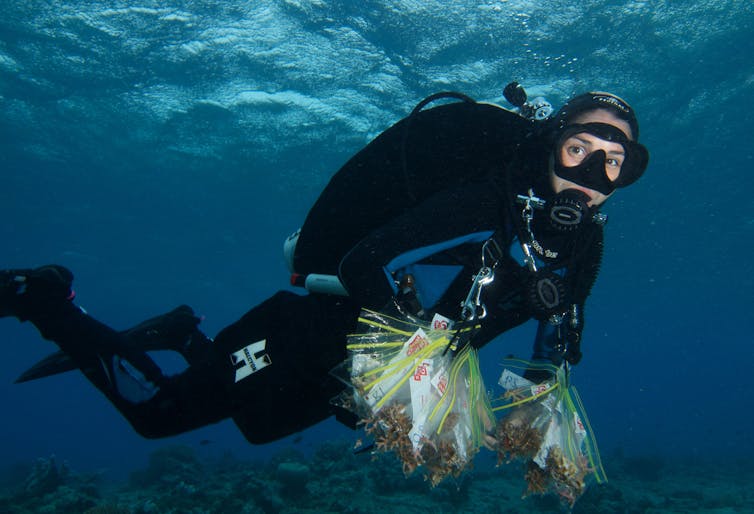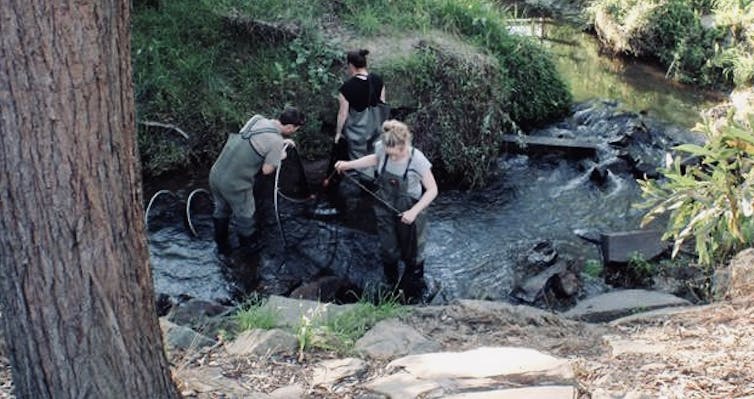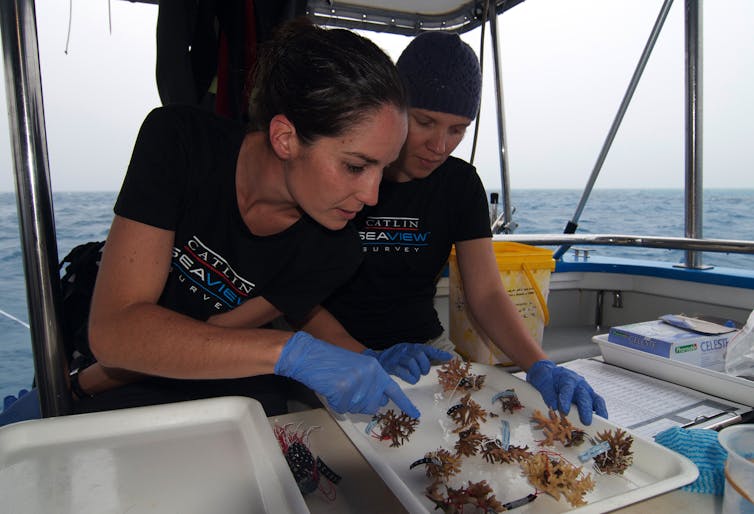'Devastating': The Morrison government cuts uni funding for environment courses by almost 30%
- Written by Dianne Gleeson, Professor, Science, University of Canberra
There has been much attention on how the Morrison government’s university funding reforms will increase the cost of humanities degrees. But another devastating change has passed almost unnoticed: a 29% cut to funding to environmental studies courses. This is one of the largest funding cuts to any university course.
Universities will receive almost A$10,000 less funding per year for each student undertaking environmental studies. The cut will undoubtedly lead to fewer students and lower-quality learning experiences.
Environmental studies encompasses the biological and earth sciences, as well as management and planning. Graduates go on to work as government policy officers, and managers in fields including water resources, the environment, urban planning and climate change adaption.
We are senior members of the Australian Council of Environmental Deans and Directors, with more than 80 years of collective experience in various environmental fields. At a time of unprecedented pressures on our environment, expertise in these fields is clearly needed more than ever.
 Cuts to university funding for environmental studies will have far-reaching effects.
Catlin Seaview Survey
Cuts to university funding for environmental studies will have far-reaching effects.
Catlin Seaview Survey
Clear-felling environmental expertise
The government’s Job-ready Graduates package applies to future students from 2021. It will cut the student contribution for environmental studies from A$9,698 to A$7,700 a year, and reduce the Commonwealth contribution from A$24,446 to A$16,500 per year. The move has been widely questioned.
We welcome any reduced fees for students. However the government contribution was not raised to cover the shortfall, so overall, the changes represent a cut of A$9,944 per year per student – a 29% decrease on current levels.
Currently, environmental studies funding is spent on specialised facilities such as labs equipped with cutting-edge technologies and field centres to support both teaching and research. It’s also spent on supporting students to gain practical and industry experience. This ensures world-class graduates skilled in the latest techniques and technologies.
More than 5,000 Australian students are currently enrolled in undergraduate environmental studies courses. While current students will not be affected by the changes, the enrolment number may drop in future due to fewer places being offered.
The funding cuts may also lower the quality of experiences offered to students or require cross-subsidisation. Some universities may also deem environmental studies courses unviable, and close them, while prioritising higher revenue-generating courses.
The change may also likely to lead to fewer staff, with specialist expertise in areas such as geospatial science, water chemistry and fire management. This will lead to smaller teaching teams with less expertise, who will in turn face increased teaching loads and less time for quality research.
Until now, Australia has been a world leader in training the next generation of environmental managers and scientists. Thirty of our universities have recently been rated as producing research in environmental science significantly above world standard. And environmental science at four Australian universities – Australian National University, University of Melbourne, UNSW and University of Sydney – was recently ranked in the top 50 worldwide.
Without adequate funding, this global standing is threatened.
 Australia’s world reputation as a leader in environmental science is threatened.
CESAR
Australia’s world reputation as a leader in environmental science is threatened.
CESAR
The bigger picture
Fewer and less well-trained environmental studies students will inevitably have a knock-on effect in sectors and industries that need quality graduates with specialist environmental knowledge, such as:
local, state and federal government, to ensure developments are sustainable and broadly benefit communities
agriculture, to address threats as diverse as water quality in the Great Barrier Reef, better retention of nitrogen fertilisers in soils and adaptation to climate change
mining, for advice on site planning and restoration to ensure minimal environmental harm during and after the mine’s operation
water management in rivers and wetlands, to respond to climate change and higher demand from growing populations.
What’s more, environmental studies courses – either as double degrees or core courses – are often part of other degrees such as law, journalism, teacher education, and engineering. This provides these professions with a critical understanding of the environment and sustainable management.
 Environmental scientists are critical to a range of sectors.
Catlin Seaview Survey
Environmental scientists are critical to a range of sectors.
Catlin Seaview Survey
We need environmental experts
Australia’s recent, brutal experience with bushfires and drought shows just how badly we need world-class environmental expertise. As climate change grows ever worse, these experts will be critical in steering us through these challenges.
What’s more, the COVID-19 pandemic – linked to land clearing and more human-wildlife interaction – shows just what can happen under poor environmental management.
Australia is uniquely vulnerable to climate change, and in 2019, recorded its worst-ever environmental conditions. These university funding cuts affect the people with the answers to our pressing environmental problems – they are a blow to the future of all Australians.
Read more: A major scorecard gives the health of Australia's environment less than 1 out of 10
Authors: Dianne Gleeson, Professor, Science, University of Canberra





